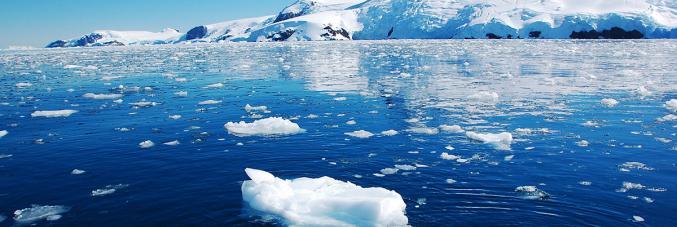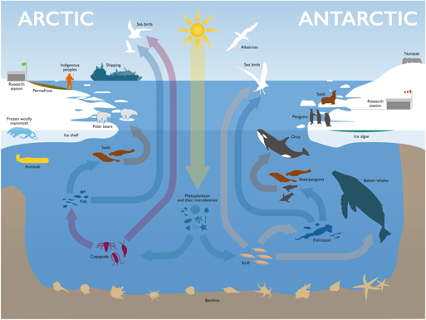
Mapping and protecting the biodiversity of the Poles, the proposal of an international research team
01.12.2023
The article Multi-omics for studying and understanding polar life, published in Nature Communications, analyzes the possible effects of global warming on the poles and their biodiversity. Written by an international research team, including Tomaso Patarnello and Luca Bargelloni, professors of the Department of Comparative Biomedicine and Nutrition at the University of Padua, the work evaluates the potential threats to Arctic and Antarctic species due to climate change.
Prof Tomaso Patarnello explains, “The ice covering the poles is estimated to undergo a reduction of 7%-14% in the coming decades, which will radically modify the dynamics of the polar ecosystems. Climate change already causes the thawing of the permafrost leading not only to the release of greenhouse gases but also bringing microorganisms frozen for thousands of years back to life. The possibility of sequencing the entire genome of polar species and studying the relationship between environmental conditions and the regulation of gene expression allows us to understand the limitations and potential for adaptation of these organisms to rapid climate changes today. To date, very few genomes of Arctic or Antarctic species have been fully sequenced. Those whose sequence is available have often revealed many surprises. This is the case of the icicle fish (Channichthyidae family) which are the only vertebrates capable of living without haemoglobin or even the case of the Antarctic krill (Euphausia superba) whose genome, recently sequenced, has proven to be among the largest genomes known so far"
Prof Luca Bargelloni explains,“The poles are recording the fastest warming rates across the globe, representing the greatest threat to organisms that have taken millions of years to adapt to the extreme conditions of remote and inhospitable areas routinely exposed to temperatures constantly below 0°C. Our work uses an ‘omics’ approach to investigate polar biodiversity, including the current state of the art, future perspectives and recommendations. We propose a community road map to generate and more fully exploit multi-omics data from polar organisms. We must approach this with the right tools to understand the modifications caused by climate change on polar organisms and to be able to predict their future impacts. The challenge will be to have sufficient resources to characterize all key species of polar ecosystems to be able to monitor the short and long-term changes caused by environmental alterations and prevent, as far as possible, the consequences."




